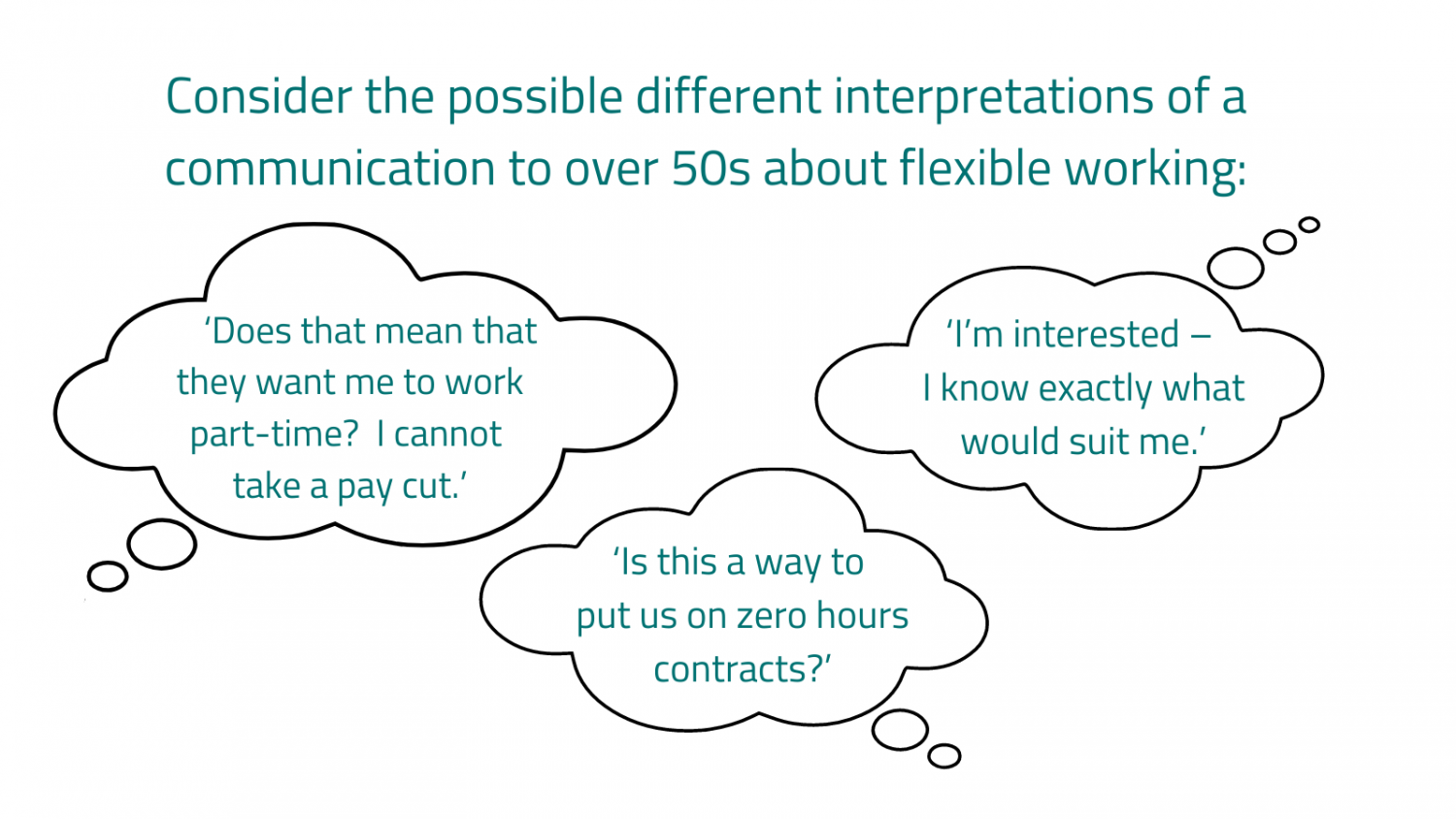

Commissioned by the Centre for Ageing Better, and in partnership with six large employers, Timewise ran an employer intervention programme to explore how flexible working can support a thriving, age inclusive workplace.
The over 50s now stay in work longer, because they want or need to. They increasingly have to balance work with the changes that come with ageing (from physical changes to a desire for more control over how they spend their time). And they make up a third of the UK workforce.
Employers value the experience and skills that over 50s bring to their roles. But the power of flexible working as a retention tool for this demographic has not been given the same level of attention as it has for other groups such as working parents.

Timewise therefore partnered with the Centre for Ageing Better to explore how employers could best support older workers through flexible working. The key findings of the project are reported below, together with details of the methodology.
Although the mechanics of implementing flexible working are the same for all demographics, ‘what happens at the edges’ can be different for older workers:

Appreciating the needs and wants of over 50s will help to engage them in conversations about flexible working, and retain their skills and experience.
Our research and pilot programme explored feelings around whether there was a ‘hierarchy of acceptable reasons for working flexibly’. Both managers and staff felt that:

Flexible working initiatives aimed at older workers need to be carefully managed to ensure there are no perceptions of age discrimination. It’s important for employers to pre-empt how different people may respond, and factor this into communications. The best way to support flexibility for over 50s may be to make it:
Either
Or

This was an 18-month programme in two-phases:
Insights research: The first phase consisted of focus groups and surveys with six large employers: Guy’s and St Thomas’ NHS Foundation Trust, Leeds City Council, Legal & General, McDonalds, Sodexo and Whitbread. We spoke to more than 40 over 50s staff from these organisations, as well as 34 managers with older workers in their teams. We also ran a survey for the over 50s, with 421 respondents, to understand attitudes and perceptions about work-life balance and flexible working, and to gain an insight into their lived experience. This was conducted between November 2018 and February 2019.
Employer pilots: Our research was followed by pilots with Guy’s and St Thomas’ NHS Foundation Trust, and two divisions at Legal & General. The purpose of the pilots was to bring about changes in working patterns for a cohort of over 50s, providing them and their managers with the training and tools to implement and adapt to different flexible working patterns. This part of the programme ran from May 2019 to February 2020, and was completed prior to the covid-19 pandemic.